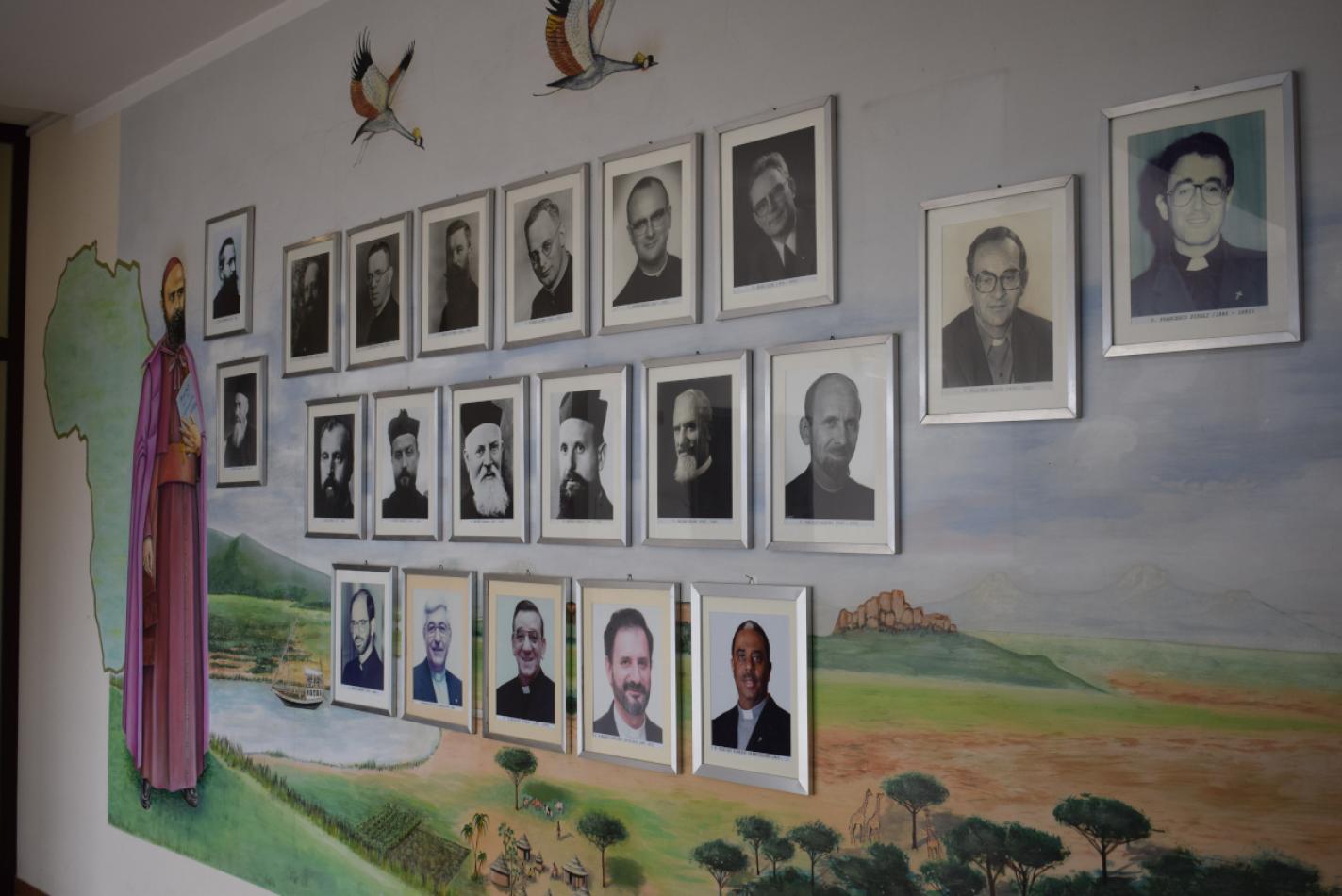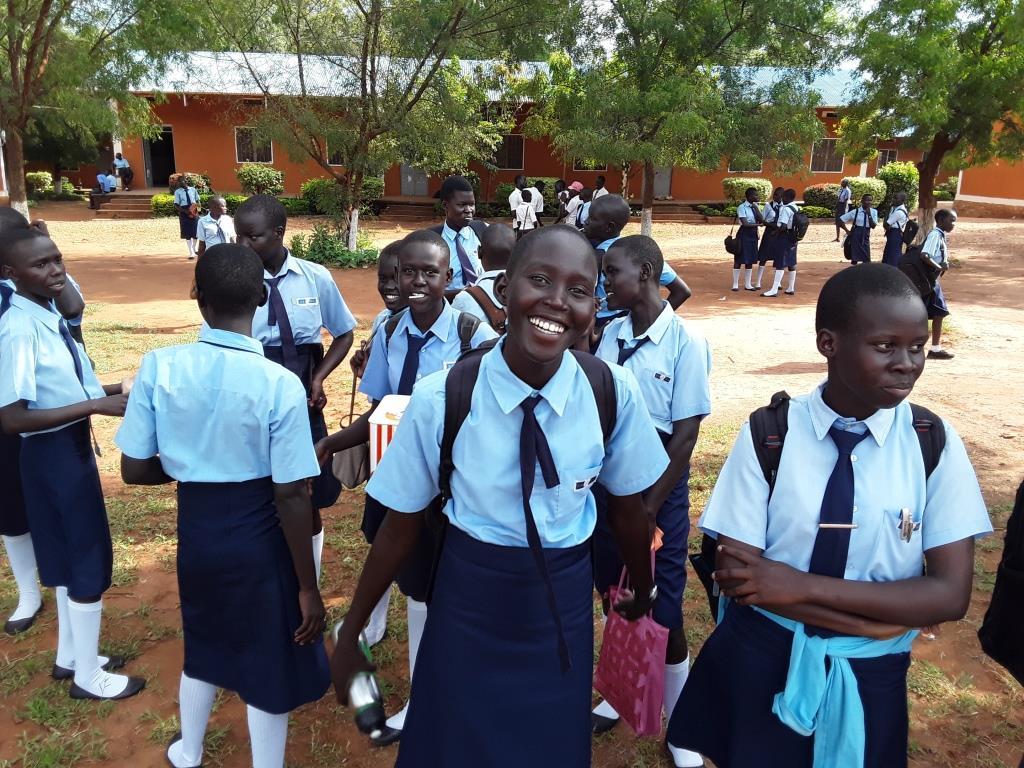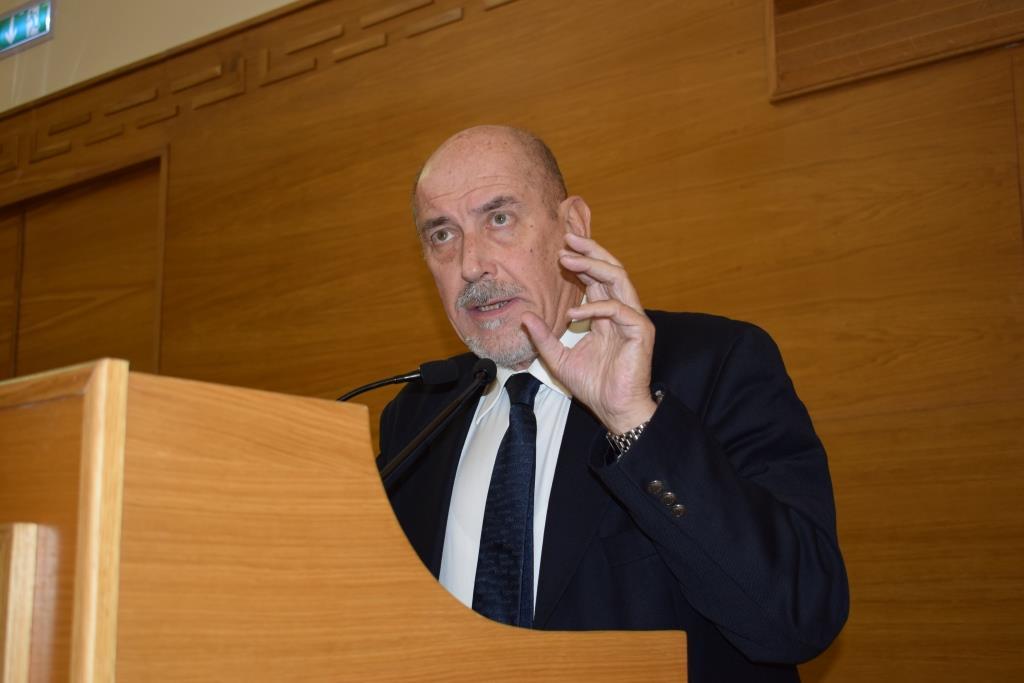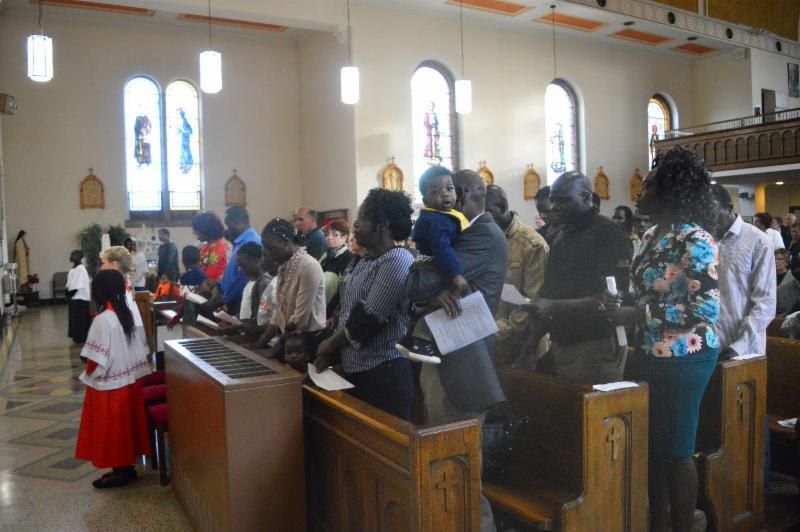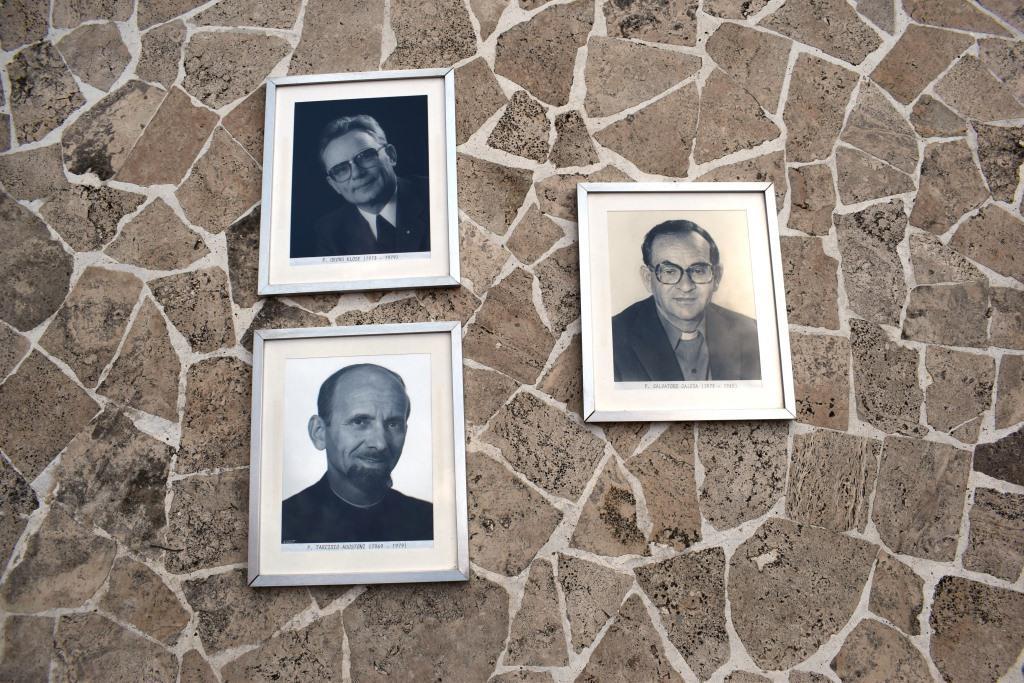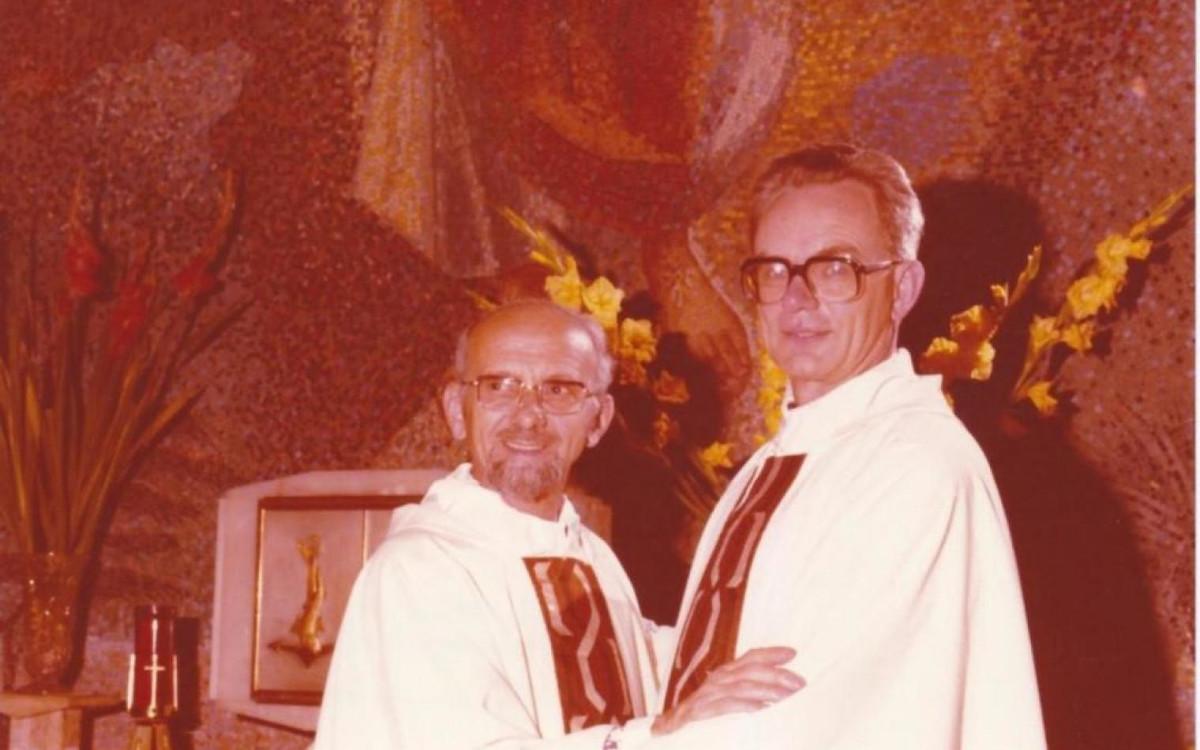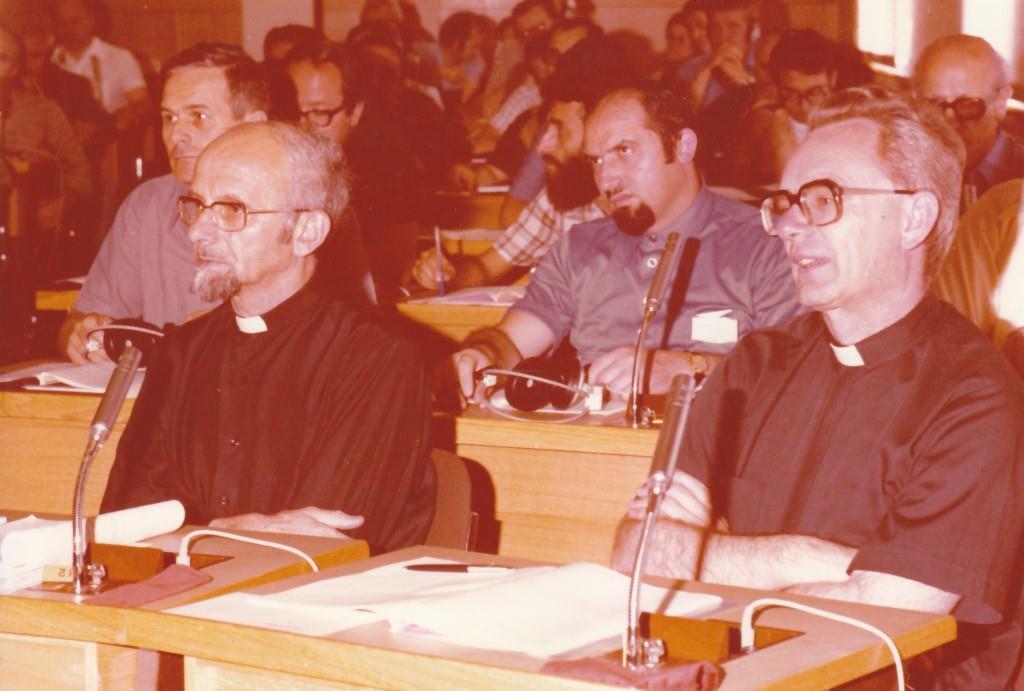Daniel Comboni
Comboni Missionaries
Institutional area
Other links
Newsletter
Monday, July 17, 2023
27/07/1923 – 27/07/2023. One hundred years have passed since the division of the Comboni Institute into two separate and autonomous Congregations. Many might ask: “Why remember the wounds of division? Why remember such a painful event?”. [See attachment].
The 100th anniversary of the division of the Comboni Institute
«Viribus unitis, the objectives would be reached more easily and more rapidly.
Moreover, all the existing works aimed at helping the Africans
– all of which are God’s works –, currently operating separately from each other
and producing scarce and incomplete results,
would thus be united together and focused on the single purpose
of planting the faith firmly in the heart of Africa.
They would acquire greater vigour, develop more easily and
become more effective in achieving the desired objective».
(Writings 1100)
«The Lord has asked us to be united among ourselves
“So that the world may believe” (Jn 17,21).
The world will not believe because of our convincing reasonings
but by our witness of the love which unites us».
(Pope Francis – General Audience 20/01/2021)
Dear Confreres,
To all of you, we send greetings of peace.
27/07/1923 – 27/07/2023. One hundred years have passed since the division of the Comboni Institute into two separate and autonomous Congregations. Many might ask: “Why remember the wounds of division? Why remember such a painful event?”.
We, the General Council, choose to make this memorial, and we invite everyone to do so because 1923 is a date that has marked the history of our Institute, and we believe it is right and honest to again reflec on the causes of that bitter event, also questioning ourselves about the antecedent facts that could partly explain it, even if not justify it.
We all agree that division is always a painful event, and also a sign of counter-witness to the Gospel, especially if this sign comes from people consecrated to the cause of the Gospel. At the same time, remembering can - and must - become an opportunity to consolidate the foundations, equip ourselves and activate us to ensure that, in the present and in the future, we never again reach a situation in which separation can be considered a viable option. Clarifying the past helps to live today more serenely and to face tomorrow with hope.
Remembering the pain of division must strengthen in us the indescribable beauty of rediscovered reunification, of the discovery made - united once again - of our most authentic charism, and of today's awareness that being "one" makes us more ready to face the mission, to grasp its true meaning and to accept its implications and sacrifices.
In every institution there is always the temptation, due to historical events - such as, in our case, the worsening of tensions between Italians and Austro-Germans during and after the First World War - to seek "my" path rather than the “ours”, to trace one's own particular path instead of following the road chosen together, to affirm one's own truths against the mistakes of others…
But today we are more convinced that division never leads to enrichment, and never frees up the best of our energy to become protagonists of a real process of construction. Division always pushes us to live isolatedly and withdrawn into ourselves, and this produces intellectual, cultural, religious, charismatic and missionary impoverishment.
The past is often perceived as now distant, difficult to understand and, therefore, unrepeatable. But we cannot exclude that future realities or situations could tempt us with the prospect of not living together. The danger of repeating the mistakes of the past is always lurking. This is why it is important that the Institute takes charge of transmitting the memory because it is indispensable for orienting us in the world and in the Church. All of this always involves decisive choices, bearers of knowledge, judgements, values and emotions capable of directing our present and our future.
Obviously, remembering must never degrade into a rhetorical narration that does not reflect the complexity of the facts. Remembering must involve precise historical knowledge because only in this way will the anamnesis be useful for truly knowing the past in all its implications. And this becomes a commitment that must involve everyone because we all want to continue to give strength and impetus to what happened in 1969, the "Blessed Year” in which it was decided to begin the reunification process.
An arduous journey followed, undertaken by confreres who, with their humanity and fragility, but also with a strong sense of responsibility, managed to revisit, read and interpret the challenges and great changes of society and the Church of the time (see the Second Vatican Council ), and then they had the wisdom to outline a journey of communion which ended happily in 1979, the "Holy Year” of reunification. We must always be very grateful to all the confreres who believed in reunification and committed themselves to achieving it, as well as to the Church which has always accompanied us – with its constant encouragement – along the way.
In today's Comboni context, remembering the wounds of division, remembering the will to return to each other and collaborate, recalling the joy of again becoming "One", is fundamental, because it allows us to maintain and protect our own identity. May the memory of this return to unity be a "school" for us in our calling today to live interculturality in our communities and in our Institute.
In making memory - and in guarding it - no one can or must be left alone because the life and history of each of us restore value and recognition to the lives of countless confreres who gave their lives, with dedication and availability, to the service of the poorest and most abandoned in history.
We would like to conclude with a simple and, we hope, significant observation. Throughout our history various acronyms have appeared as our proper “names”: FSCJ (Filii Sacri Cordis Jesu), MFSC (Missionarii Filii Sacri Cordis Jesu), and MCCJ (Missionarii Comboniani Cordis Jesu). Two words have always remained present, even when the two "branches" of the one "vine" separated: Cordis Jesu. We do believe that our desire to become again "One" and the unification achieved has always been "A matter of the Heart". Was it not really our belief in the Heart of Jesus, where Trinitarian love showed itself in the flesh, that led us once again to be better witnesses of a God who is love, and therefore communion and fraternity, and to proclaim and serve together?
May the Heart of Jesus always keep us one.
The General Council
Rome, July 1, 2023
Photo of the two Superiors Generals, Fr. Tarcisio Agostoni and Fr. Georg Klose, on the day of reunification, feast of the Heart of Jesus, June 22, 1979 in Rome:
A 100 anni dalla ferita della divisione - DE - Lettera del CG lug23
A 100 anni dalla ferita della divisione - EN - Lettera del CG lug23
A 100 anni dalla ferita della divisione - ES - Lettera del CG lug23
A 100 anni dalla ferita della divisione - FR - Lettera del CG lug23
A 100 anni dalla ferita della divisione - IT - Lettera del CG lug23
A 100 anni dalla ferita della divisione - PT - Lettera del CG lug23

